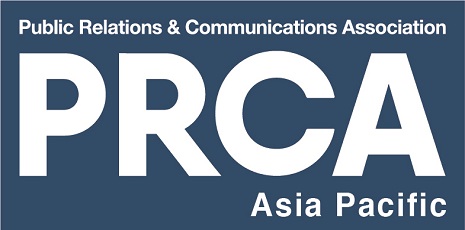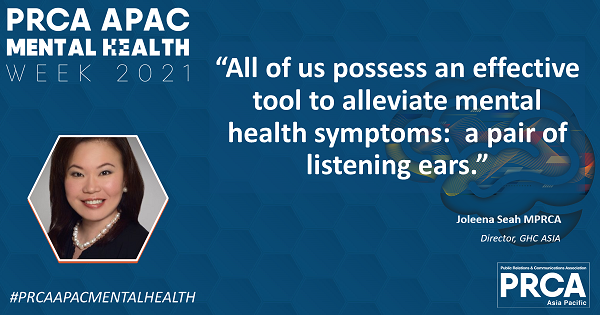Long before COVID-19 had a name, mental health stigma has caused many to struggle in silence for fear of being judged. The past 19 months only served to worsen the situation. This is especially prevalent in Asian societies, where mental conditions are often associated with weakness. Deep-rooted family traditions and cultural norms passed down for generations discourage discussions around the taboo of mental illness in order to “save face”.
Thankfully, the pandemic has promoted public discussions of wellbeing including the importance of mental health globally. Policy makers and employers have acknowledged the need to address mental health support for stakeholders, in addition to advocacy groups and helplines as an extra source of knowledge and understanding of mental health conditions. But the taboo persists.
As the PRCA APAC Mental Health Report 2021 has shown, 88 per cent of respondents feel uncomfortable discussing this issue with co-workers. Isn’t this a contradiction for an industry, whose core competency is communications?
While improvements are slowly being introduced to Asia’s work culture, this will be a slow and careful journey towards positive mental health. Unlike the US or Europe, many economies in Asia are still struggling to recover. Consequently, bread and butter issues related to an organization’s commercial success, such as financial health and job security, take top priority. Allocation of resources towards promoting mental health and employee wellbeing is often being relegated to a secondary list. But this should not impede the introduction of positive mental health at the workplace.
Being PR professionals, we have the inherent ability to listen to our clients’ needs and aspirations. Listening is an art, and we are a community of artists who can create transformative results from our understanding. This talent should be applied to our family, friends and colleagues as well.
The simple act of active listening without the urge to dispense advice or personal opinions will go a long way in helping a co-worker, even if there is no mental health challenge. Lending a willing ear may seem trivial but it could mean a lot to someone in need of relief of pent-up frustrations, anxiety or self-doubt. Without replacing the need for clinical intervention, active listening could be the first step to helping a colleague verbalise the issues or simply, stress relief.
Not only will such interactions foster stronger team spirit in the workplace, they build trust and confidence through acceptance and respect for each other’s mental health. There is no need to wait for new HR policies or compensation and benefits guidelines, nor does it require costly healthcare entitlements. Instilling the culture of care and empathy through active listening will make a small difference in a big way.
Once we recognize a colleague or friend in distress, we should leverage our natural PR instinct to offer an empathetic ear. Although it may seem odd or uncomfortable, remember that many people experiencing mental health symptoms want someone to notice them and offer support.
All of us possess an effective tool to alleviate mental health symptoms: a pair of listening ears.



